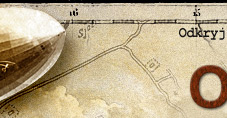

Air Combat During Arab-Israeli Wars
KageroRok wydania: 2017
ISBN: 978-8365437-49-5
Oprawa: miękka ze skrzydełkami
Ilość stron: 104
Wymiary: 170 x 240
Dostępność: Na półce
70.00 zł
Publikacja w języku angielskim.
The conflict between Israel and the Arab states has been continuing with varying intensity for about 100 years (and in some cases since much earlier times).
Undoubtedly, this is the longest armed conflict in the twentieth century and one of the longest conflicts in history.
The dispute over the identity and shape of the territory of Israel is one of the most difficult, and the international community has still not managed to formulate a final opinion on this. After their tragic experiences (especially during the Second World War), the Jewish community decided to create their own state using a “fait accompli”. In 1948 there was a war, as a result of which the independent state of Israel was established within the former British Mandate of Palestine.
Arab states recognized this as a humiliation and started a virtually endless war aimed at its elimination. It was (and largely still is) a struggle based mainly on ideological and religious lines. Egypt and Syria had not, in fact, such large material interests in the destruction of the Jewish state, the more so that these wars were associated with huge costs. From a financial point of view, they would benefit a lot more if instead of starting a war, they would have commenced economic cooperation with Israel. In the conditions in the Middle East, this was impossible. The only Arab ethnic group which may have physically gained something from defeating Israel were the Palestinians, but they did not play a major role in the Arab-Israeli wars. The first glimpses of potential cooperation (or at least lack of open war) between Israel and Egypt appeared only as a result of the agreement at Camp David in 1978. After decades of costly wars with Israel, Egypt had to recognize that the defeat and destruction of the country was simply impossible and took the practical decision to discontinue open war. From then on there has been relative peace between Israel and Egypt.
The conflict between Israel and the Arab states has been continuing with varying intensity for about 100 years (and in some cases since much earlier times).
Undoubtedly, this is the longest armed conflict in the twentieth century and one of the longest conflicts in history.
The dispute over the identity and shape of the territory of Israel is one of the most difficult, and the international community has still not managed to formulate a final opinion on this. After their tragic experiences (especially during the Second World War), the Jewish community decided to create their own state using a “fait accompli”. In 1948 there was a war, as a result of which the independent state of Israel was established within the former British Mandate of Palestine.
Arab states recognized this as a humiliation and started a virtually endless war aimed at its elimination. It was (and largely still is) a struggle based mainly on ideological and religious lines. Egypt and Syria had not, in fact, such large material interests in the destruction of the Jewish state, the more so that these wars were associated with huge costs. From a financial point of view, they would benefit a lot more if instead of starting a war, they would have commenced economic cooperation with Israel. In the conditions in the Middle East, this was impossible. The only Arab ethnic group which may have physically gained something from defeating Israel were the Palestinians, but they did not play a major role in the Arab-Israeli wars. The first glimpses of potential cooperation (or at least lack of open war) between Israel and Egypt appeared only as a result of the agreement at Camp David in 1978. After decades of costly wars with Israel, Egypt had to recognize that the defeat and destruction of the country was simply impossible and took the practical decision to discontinue open war. From then on there has been relative peace between Israel and Egypt.
Klienci, którzy oglądali tą książkę oglądali także:
• Air Force One
• The Bulgarian Air Force in World War II. Germany's Forgotten Ally
• 453 Heinkel He 112
• Ty43 - lokomotywa wojenna
• Armie macedońskie po Aleksandrze Wielkim 323-168 przed Chr.
• 451 TK-3/TKS (20 mm) TKD/TKS-D
• Piękna opowieść o historii Rumunów
• Ikony PRL. Bohaterowie tamtych lat
• Memuary albo Okruchy z życia Lejba
• Agenci, szpiedzy żołnierze
• The Bulgarian Air Force in World War II. Germany's Forgotten Ally
• 453 Heinkel He 112
• Ty43 - lokomotywa wojenna
• Armie macedońskie po Aleksandrze Wielkim 323-168 przed Chr.
• 451 TK-3/TKS (20 mm) TKD/TKS-D
• Piękna opowieść o historii Rumunów
• Ikony PRL. Bohaterowie tamtych lat
• Memuary albo Okruchy z życia Lejba
• Agenci, szpiedzy żołnierze
Recenzje
| Brak recenzji tej pozycji |
















 powrót
powrót